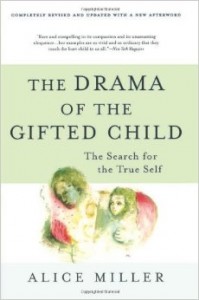Why do people become depressed? A popular theory is that it is the brain chemistry that is in disarray. But this way of thinking often obscures the issue.
Depression rarely comes out of nowhere. It almost always has an explanation, even if it is not apparent to us. Also, read “What is Your Depression Telling You?”
A better explanation for why many people become depressed is, in my opinion, that we develop vulnerabilities earlier on in our life that predispose us to live a life that is lacking in zest, enjoyment, and meaning.
Oftentimes these earlier vulnerabilities point us to experiences of trauma, neglect, or interpersonal disappointments that may or may not be fully apparent to us.
We almost all undergo some kind of trauma, neglect, or serious interpersonal disappointments at some point in our life, and how we deal with these events can prepare the ground for a later depressive episode. To understand why this is is to understand how humans function.
Responding to Trauma by Losing Ourselves:
When we go through difficult events that we don’t know how to deal with, our psyche responds just like a lizard that loses its tail because it is afraid of a predator. It helps us make an adaptation out of fear, but always at the cost of making us a little less human, or little less ourselves.
Overwhelming shame, for example, might make us abandon a piece of who we are, or in the worst case, our entire person.
How Sexual Abuse Can Lead to Depression:
If I was sexually abused, for example, and didn’t know how to deal with my conflicted emotions and loyalties, it might make me feel bad about wanting and desiring. I might be confused about whether I myself sent out the wrong signals, and might question if the sensation of pleasure I felt, really meant that I desired the abuse, or that my desires are bad.
The psychological compromise I can make to rid myself of my shame is to begin to live a passive life where my awareness of my desires and wants is dimmed, or totally banished. This might mean that I get involved in relationships that are not particularly good for me, that I put up with mistreatment or one-sided relationships because I am reluctant to say “no”, or that I unconsciously seek out bad relationships because I at some level believe I should not get what I really want, or deserve to be punished in some way to atone for my badness.
This compromise I have made to deal with the unbearable experience of sexual abuse has now prepared me for life of lackluster results and lack of enjoyment.
If I become depressed, this is therefore not because there is something wrong with my brain. It is because some part of me doesn’t want the life that I have. My depression is like the last call to me deep from within that indicates that I need to make changes to my life situation because the status quo is antithetical to life. My adaptations to a difficult situation, have now become destructive to what life is really about. Life has turned against life, and my depression is thankfully alerting me to this fact.
Trauma Comes in Many Forms:
Trauma does not have to imply a big dramatic calamitous event, but can refer to any moment when we felt overwhelmed with painful or distressing emotions we did not get the help to deal with. Sexual abuse, physical violence, or growing up with alcoholic parents are some of the more apparent reasons why a person might get exposed to emotional overwhelm, but there are many others.

One of the more frequent causes of adaptations out of fear is the fear of losing love from the people we depend on. In Alice Miller’s book “The Gifted Child”, she describes how this can happen due to growing up with narcissistic parents.
A child, she says, has the need to look into their parent’s eyes and see themselves reflected. If I cry, I need my parent to validate that I am feeling sad, and if I am happy, I need my parents to be happy for me. Unfortunately, some of us look into our parents eyes, and see our parents feelings, not our own. When we are sad, they feel inadequate and get annoyed with us. When we are excited, they are too busy watching TV, and tell us to shush.
These kinds of experiences when they accumulate over time can create serious distortions to our self-image, and can make us abandon ourselves in a pursuit to become more acceptable to our parents.
Research has shown that threats to our sense of safe connection with a caregiver register in our brain as panic, and that losing our connection completely registers as pain. To avoid feeling these unbearable emotions, we will do a lot, even if it means ridding ourselves of our natural spontaneous desires and feelings.
Other ways to deal with the threat of loss is to become numb, or to become what the psychiatrist Karl Jaspers has described as a “dead person with wakeful eyes”.
What Does Depression Have to Do with It?
When we pay too big of a price to stay safe early on in life, we enter into adulthood ill prepared to deal with life’s challenges.
If we have gotten used to numbing ourselves to unpleasant emotions, we will likely also find it difficult to feel joy and excitement.
If we have learned to live our life in an effort to please our parents, our accomplishments won’t really mean much to us, and we will pursue goals that are not aligned with what we really want.
If we had to abandon ourselves because of shame about our needs or our feelings, we will forever have a sense of emptiness inside because we aren’t fully honoring and accepting who we are.
In many cases, when we really look at the reasons why people become depressed, we find a childhood history of trauma, abandonment, or neglect that has resulted in adaptations that are currently getting in the way of living a meaningful life.
Depression is often simply telling us that we are not really living our lives as ourselves.
To resolve this situation is to confront the underlying reasons why we make the choices we do, and to see to what extent we are really living a life based on avoiding shame, anxiety, guilt, and pain, and not a life based on our genuine feelings, needs, and aspirations.
Rune Moelbak, Ph.D., is a psychologist and depression specialist in Houston, Texas. He is the owner of Better Therapy, a therapy practice for people who want to discover the underlying roots of their current psychological problems.
 I got a call a few weeks ago from folks that wanted to write an article about my parents and I. They had found me by reading a blog I had written, Our Parents, Our Depression.” They interviewed me then asked if I would rummage through some old pictures of my parents. I dug around in some boxes. I found an old black and white of my parents. Probably when they were in their early fifties. It brought me down. They had depression also. Though I didn’t know that as a child. And they probably didn’t think of it that way. But they clearly had all the symptoms.
I got a call a few weeks ago from folks that wanted to write an article about my parents and I. They had found me by reading a blog I had written, Our Parents, Our Depression.” They interviewed me then asked if I would rummage through some old pictures of my parents. I dug around in some boxes. I found an old black and white of my parents. Probably when they were in their early fifties. It brought me down. They had depression also. Though I didn’t know that as a child. And they probably didn’t think of it that way. But they clearly had all the symptoms.









